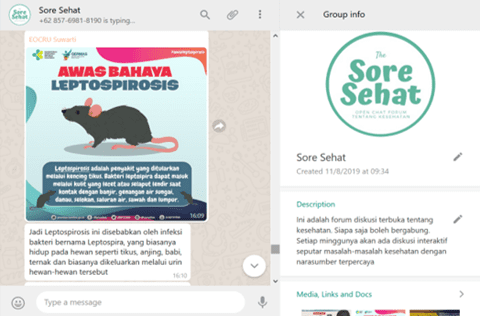Leptospirosis is a bacterial disease that affects humans and animals, and is one of the WHO-listed neglected tropical diseases. The incidence of leptospirosis in Southeast Asia is estimated at 12.5 cases in 100.000 per year with a mortality of severe leptospirosis estimated between 5-40%.
In Indonesia, leptospirosis is likely to be an underrecognized, underreported problem, because of the infection being clinically unapparent, misdiagnosed as dengue fever, typhoid fever or other endemic diseases, and because of the lack of laboratory capacity to perform confirmatory tests.
Laboratory analysis of leptospirosis is based on a serological gold standard, microscopic agglutinin test (MAT), which is only available in very few reference laboratories in Indonesia. Jakarta is the capital of Indonesia and the most densely populated province. During a heavy flood in January 2020, the Jakarta Health Agency reported an outbreak of more than 250 suspected leptospirosis cases.
We sought to investigate archived blood specimens from suspected leptospirosis cases from the leptospirosis surveillance program as well as hospitalised cases.
A small bio-archive has been established of specimens of suspected leptospirosis cases from epidemiological surveillance and hospitalised cases. Laboratory analyses are currently ongoing.
